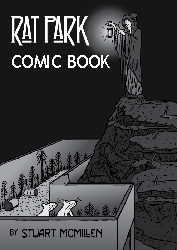Homeless souls: Addiction as adaptation to psychosocial dislocation
by Wayne Skinner
Published by Crosscurrents: The Journal of Addiction and Mental Health, 2010, Volume 14, Number 2.
It‘s been two years since Bruce Alexander’s The Globalization of Addiction first appeared. The release of the paperback version is a good time to reflect on the book and its impact. It has been praised in diverse quarters, including making it onto the British Medical Association’s Books of the Year list for 2009.
The book is not a new foray in this territory, but the summary of a lifetime of scholarly work that has been at odds with conventional addiction theory and science. Over the past two decades, advances in neuroscience have encouraged the belief that addiction can be fully understood and addressed as a disease that occurs in the brains of particular vulnerable people, making the biological sciences the primary domain for understanding and addressing addictive behaviours.
It is against that growing orthodoxy that Alexander has been working for some time. In this book, he pulls it all together in an account that is at once compelling and rigorously scholarly. Without endnotes and references, the text drops from more than 450 pages to under 300. (I say this to encourage anyone who might feel intimidated by the size of the tome to pick it up.) From the revealing excavation of the word “addiction” to his theory of dislocation, Alexander shows that some of the most telling insights into addiction come from the ancient world. Augustine and Socrates show the reader that our current social concerns are, if worse, still similar.
At its nub, Alexander’s argument can be presented in a few blunt brush strokes, which he does well. He defines addiction as “overwhelming involvement in any pursuit whatsoever … that is harmful to the addicted person and his or her society.” These pursuits, drugs or gambling or whatever, are not themselves the causes of addiction. For Alexander, addiction is an adaptive response to dislocation—the loss of (or failure to achieve) psychosocial integration. Dislocation includes but is more than the displacement that immigrants, refugees or the colonized experience, which he vividly illustrates using the history of his hometown of Vancouver.
Alexander views psychosocial integration as the goal of human development, both personal and societal. The more people, individually and collectively, are unable to establish and maintain an existential sense of wholeness and community, the increased the likelihood that they will recourse to addictive behaviour. Addiction is a way of adapting to the homelessness of the human spirit that dislocation produces.
Alexander shows that our age is particularly vulnerable to addiction and other pathologies because the prevailing economic order undermines psychosocial integration more than any other social structure to date. Because globalizing free-market forces produce mass dislocation as part of normal functioning, Alexander sees this as an age of “unprecedented, worldwide collapse of psychosocial integration.” Addiction is not just the problem of the disadvantaged and the destitute; it affects even more perversely those who have wealth and resources; dislocation is “the general condition.”
Addictions become the tiny baskets into which more and more people put all their eggs in search of compensation for lives without psychosocial integration. For Alexander, addiction occurs along a continuum, and is not the only manifestation of dislocation. He mentions other pathologies of modern life—depression, apathy, anxiety, self-harm and violence, for example. In building his case, Alexander acknowledges that while dislocation is a necessary condition, it alone is insufficient to “cause” addiction. This turns us back to the need to have a fully integrated bio-psycho-social-spiritual view of these problems. In contributing to that comprehensive model, Alexander points out what we’re up against and where we need to look for solutions. Not a bad testament to a lifetime of work.
The Globalization of Addiction: A Study in Poverty of the Spirit. Bruce Alexander. Oxford University Press, Oxford, UK, 2010, 488 pp., $42.95.
Wayne Skinner is deputy clinical director of the Addictions Program at the Centre for Addiction and Mental Health in Toronto.
Reference:
http://www.camhcrosscurrents.net/archives/winter2010/homeless_souls.html

